Orin Foster Environmental Lecture Series
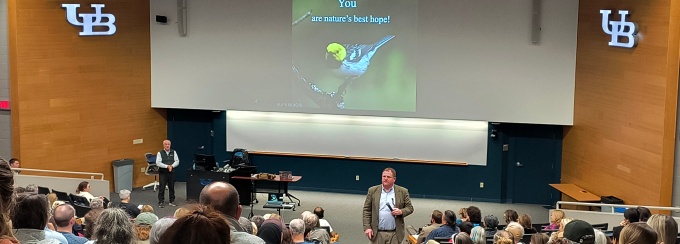
EVS Seminar Series guest Doug Tallamy presenting: "Nature’s Best Hope"
Join us for the Orin Foster Environmental Lecture Series and Environment and Sustainability Seminar Series, where leading experts dive into the most pressing environmental challenges of our time.
📢 Stay informed about all our seminars and public lectures by subscribing to our announcement list! No UB email is required! Anyone can join and stay updated on our events.
Monthly Events:
Below you’ll find an exciting lineup of outstanding guest speakers and their scheduled dates! We are currently working on the titles and summaries of their talks—stay tuned!
MEET EVS FACULTY
Date: January 30, 2026
Time: 2 p.m
Location: 210 O'Brian Hall, North Campus
Can't make it in person? Watch on ZOOM
Our department’s faculty and staff are leaders in their fields and teach many of the courses in our undergraduate and graduate programs. At this event, each EVS faculty and staff member will introduce themselves, talk about the research they do, and share the classes they teach. It’s a great chance for all EVS students (and EVS-curious folks) to meet us in person, ask questions, and put faces to names!
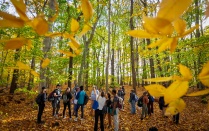
Nicholas Pyenson
Digitizing Whale, Ichthyosaur, and Sea Cow Graveyards: How 3D Data Changed The Way I think About Research, Collections, and Diplomacy
Date: February 13, 2026
Time: 6 p.m
Location: 120 Cooke Hall, North Campus
Can't make it in person? Watch on ZOOM
Digitization is one of the great technological waves sweeping through museums in the 21st century. While we tend to think of its use in museum settings, there is also an application in the field, to document a moment in research time. What happens when we can only make digital copies of fossils that must remain in the field? My talk will follow 3D digitization as thread through three different fossil sites: a fossil whale site in Chile, an ichthyosaur one in Nevada, and a fossil sea cow one in Qatar. The primary driver across these sites is to understand what these assemblages tell us about the ecological role of large ocean consumers, over the past quarter of a billion years. Along the way, I want to show how doing this work changed how I think about my research questions, the fossil collections in my care, and opened my eyes to the potential of leveraging 3D data for diplomacy.

Nicholas Pyenson, Lead Curator, Smithsonian Institution, National Museum of Natural History

Ronell Bridgemohan
Micro to Macro: Microbial Insights to Macro Solutions—Using Microbial Source Tracking and Modeling to Determine Mitigation Strategies for Water Quality Issues in Tropical and Subtropical Systems
Date: February 20, 2026
Time: 2 p.m
Location: VIRTUAL ONLY ZOOM
Dr. Bridgemohan will share how microbial source tracking (qPCR and novel markers) and hydrologic/modeling approaches can pinpoint pollution sources and predict risk across watershed-to-coast scales. We’ll translate those findings into practical, nature-based and policy-ready strategies to improve water quality and resilience in tropical and subtropical environments.
Dr. Bridgemohan is a new Adjunct Lecturer at the University at Buffalo, currently teaching EVS 321: The Environmental Impact of War. The course explores the physical, chemical, and biological effects of war on the environment, using historical and contemporary case studies worldwide, and examines strategies for mitigating and remedying environmental damage. Dr. Bridgemohan's broader work bridges microbiology, hydrology, and environmental modeling to support One Health and community resilience initiatives.
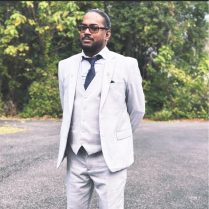
Ronell Bridgemohan, Adjunct Lecturer, University at Buffalo
Kelley St. John
Local Action Matters: leveraging resources and understanding community needs to address climate change
Date: February 27, 2026
Time: 2 p.m
Location: O'brian 210, North Campus
Can't make it in person? Watch on ZOOM
Kelley Mosher St. John (MUP '18, BAED/BS '15) will share insights and reflections from a decade of working in municipal sustainability to assist local governments with addressing the most pressing challenges of our time through a lens that is focused on community and how we leverage challenges into opportunities. With a grounding in community-based research and a career start in grant management, St. John has contributed to a portfolio of initiatives that elevate the City of Buffalo as a leader in addressing the climate crisis and its present and projected impacts. This talk will focus on the vital importance of local governments taking action on global dilemma and how the communities' needs can - and should - lead that work. Woven with personal experiences, the talk will highlight how St. John's unconventional sustainability education and cultivating community relationships became the foundation for this sustained work in Buffalo.

Kelley St. John, Climate Action Manager, Office of Strategic Planning, City of Buffalo


Jagriti Upadhya
Religious environmental "Hugging Trees movement"
Date: March 13, 2026
Time: 2 p.m
Location: Baldy 200G, North Campus
Can't make it in person? Watch on ZOOM
The women of the Bishnoi community in Rajasthan's desert region have long been the backbone of environmental protection. Following the tenets of their spiritual Guru, Jambhoji, 363 women and men led by Amrita Devi, chose to have their heads decapitated, rather than let the trees in their village be cut down by the soldiers of the King (Maharaja Abhay Singh), who by a tyrannical decree, had ordered the trees to be chopped down for timber for the royal palace. This was the Chipko Andolan- the tree- hugging movement, which is still active in the hills of Rajasthan, where communities led by women and transgender community are resisting orders to overtake land and fragile ecosystems for development. Today, women of the Bishnoi community protect blackbucks, deer, and other animal species from poaching and hunting, and sometimes even breastfeed a baby doe if its mother has died. The tree-hugging movement evolved into a nonviolent environmental campaign starting in the 1970s in the Himalayas, where villagers, especially women, led by figures like Gaura Devi, hugged trees to prevent commercial loggers from cutting them down, using their bodies as physical barriers to protect forests vital for local resources, inspiring global environmentalism and leading to logging bans. It also expanded to shed light on limited drinking water, when rural communities have to walk miles and go deep into wells to get drinking water, as water recedes (in part due to lost forest area and also prolonged drought-- climate change)

Jagriti Upadhya, Guest Faculty at the Department of English, Jai Narain Vyas University, Jodhpur.
Valerie Trouet
Tree Story: What we can learn about human, climate, and forest history from the rings in trees
Date: March 27, 2026
Time: 6 p.m
Location: 121 Cooke Hall, North Campus
Can't make it in person? Watch on ZOOM
Dendrochronology - the study of the rings in trees - allows us to reconstruct climate variability over the past ca. 2,000 years and to put current anthropogenic climate change in a long-term context. We can use tree rings to study past mean climate, but also climate extremes - such as drought, hurricanes, and wildfires - and climate dynamical patterns, such as the jet stream. In addition to this, dendrochronology sits at the nexus of climatology, ecology, and archeology and helps us to link climate history to forest history and human history. In my talk, I will present two tree-ring based studies aimed at providing long-term records of (1) climate variability and (2) California wildfires. I will show how our centuries-long tree-ring records have improved our understanding of the interactions between the climate system, human systems, and ecosystems.


Valerie Trouet, Professor of Dendrochronology, Laboratory of Tree-Ring Research

Pamela Pozarny
The Value-Added of Applied Anthropology in International Development: How Social Analysis Strengthens Investment Initiatives
Date: April 3, 2026
Time: 2 p.m
Location: O'brian 210, North Campus
Can't make it in person? Watch on ZOOM
Dr. Pozarny will share her ‘career journey’ working as an Applied Anthropologist in and on Africa for decades focusing on sustainable livelihoods, inclusive rural development, broadly poverty reduction. She has worked with the Food and Agriculture Organization (FAO) of the UN as Senior Rural Sociologist; USAID as Research Coordinator in Zimbabwe for the Land Tenure Centre/University of Wisconsin/Zimbabwe on Land Reform and Resettlement; Africare/UNHCR Project Coordinator in Rwanda on settlement, followed by UNDP as Technical Advisor covering Governance, Decentralization and Area Rehabilitation and Development Planning; and with US Peace Corps in northern Togo. She will highlight the benefits and value added of her training and extensive and varied experiences in social analysis, contributing to national policy formulation, strategies and investment programmes and projects concerning agrifood system transformation. Through unpacking the complexities of local but also national-level realities, she will share how deep-dive understanding of socioeconomic contexts, anchored in participatory approaches, and working cross-cutting with other technical specialists can strengthen relevance, inclusion, and sustainability of development interventions, while reducing risks and unintended impacts.
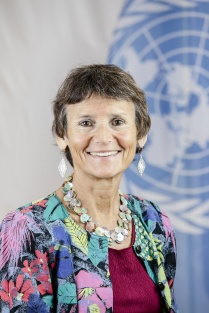
Pamela Pozarny, PhD in anthropology from University of Florida, with certificates in Farming Systems Research and Tropical Agriculture
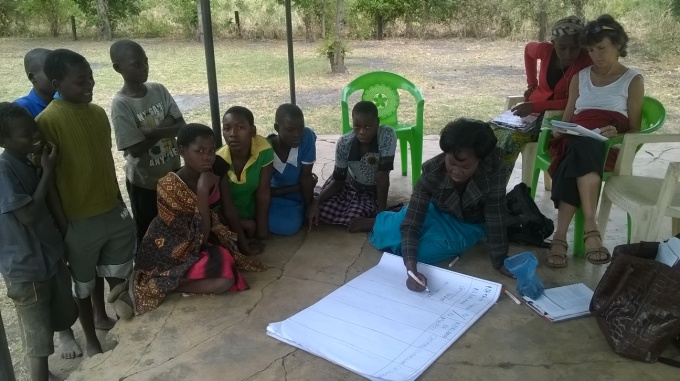
Photo credit: Pamela Pozarny
Christina Perazio
There’s No Place Like Home—Unless It’s Loud: Whales and Bats and Anthropogenic Noise, Oh My!
Date: April 17, 2026
Time: 2 p.m
Location: O'Brian 210, North Campus
Can't make it in person? Watch on ZOOM
As a behavioral ethologist, Dr. Perazio is interested in the acoustic structure of communication signals, especially for species that communicate across distances, and in particular how anthropogenic noise interacts with the structure of those signals.
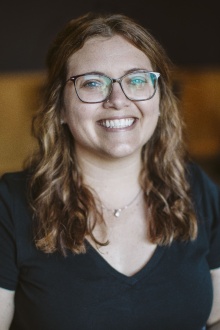
Christina Perazio, Assistant Professor, Canisius College
Irene Pepperberg
Science as a Self-Correcting Mechanism… Examples from Avian Cognition
Date: April 24, 2026
Time: 6 p.m
Location: 121 Cooke Hall, North Campus
Can't make it in person? Watch on ZOOM
My students and I have examined the cognitive and communicative abilities of Grey parrots (Psittacus erithacus) for almost 50 years. Some of our most extensive studies involved concepts of same/different and ‘inference by exclusion’. Of particular interest is that these studies benefitted greatly by collaborative efforts with researchers having different types of expertise, allowing us to appropriately compare the birds’ competencies with other species, whether differently-aged humans or other nonhumans. Such collaboration helped to expand our knowledge as well as that of our subjects. I discuss not only the resulting data, but also the importance of the design of appropriate experiments to discover and test the levels of cognitive processing that are actually required to master these concepts.

Irene Pepperberg, Research Professor, Boston University

Jonathan Burgess
Building University-Community Research Networks: Soil and Water Lessons from Pittsburgh
Date: May 1, 2026
Time: 2 p.m
Location: O'brian 210, North Campus
Can't make it in person? Watch on ZOOM
Over the past 15 years, Jonathan Burgess has helped build mutually beneficial partnerships between grassroots organizations and academic institutions in the Pittsburgh region. This collaborative work leverages community relationships and knowledge, combined with academic research, to address urban soil and water issues. This talk will cover Burgess’ background and current role leading the Pittsburgh Water Collaboratory, and lessons learned from mapping and addressing contamination in soil and waterways. Throughout, this talk will emphasize the values, resources, and actions necessary to build impactful, collaborative, and community-engaged research centers in today’s universities.

Jonathan Burgess, Director, Pittsburgh Water Collaboratory, University of Pittsburg
Prescriptive Decarbonization Solutions for Mid-Transition
Madalsa Singh, Assistant Professor, Golisano Institute of Sustainability, Rochester Institute of Technology
Nature's Best Hope
Doug Tallamy, Baker Professor of Agriculture, Department of Entomology and Wildlife Ecology, University of Delaware
Turning Gray to Green: Post-Industrial Restoration and Urban Ecological Connectivity in Buffalo, NY
Nicholas Henshue, Associate Teaching Professor, Department of Environment and Sustainability, University at Buffalo
Understanding Community Preferences for Improved Energy Resilience
Susan Clark, Associate Professor, Department of Environment and Sustainability, University at Buffalo
Erie County Climate Action & Sustainability Initiatives
Tracy Skalski, Sustainability Coordinator, Erie County Department of Environment & Planning
The increasing value of biodiversity in a rapidly changing world
Healy Hamilton, Chief Scientist, Sustainable Forestry Initiative
The Liars of Nature and the Nature of Liars: The Evolution of Cheating
Lixing Sun, Distinguished Research Professor, Central Washington University
Cultivating UB’s Premier Community Garden: An On Campus Application of the Miyawaki Forest Method
Omar Suri, UB Sustainability, University at Buffalo
Snowy Owls and Lemmings: 35 Years of Predator-Prey Dynamics in the Arctic
Denver Holt, Owl Research Institute
Seed Saving and Climate Resilience in Western New York
Josh Randall, Natural Resources Educator, Cornell Cooperative Extension, Niagara County
Lessons from 65 years of Observing Wolves and Moose on a Wilderness Island
John Vucetich, Distinguished Professor, Michigan Technical University
The Academic Life and Times of Jordan Fox
Jordan Fox, Associate Professor, Department of Sociology and Criminology, Department of Environment And Sustainability, University at Buffalo
Evaluating how prairie restorations influence native bee communities
Dan Cariveau, Associate Professor, Department of Entomology, University of Minnesota
Nature-Based Solutions for Climate Adaptation in Cities
Nancy Grimm, Regents Professor, Virginia M. Ullman Professor of Ecology, School of Life Sciences, Arizona State University
Plants, Places, People, and Social Structures: Exploring Sites, Archives, and Familial Memory
Alissa Ujie Diamond, Assistant Professor, Department of Urban and Regional Planning, University at Buffalo
The Bird Ring: how colonial empire haunts contemporary bird research in the Tropics
Lydia Gibson, Assistant Professor, Geogetown University
Ma ka hana ka ʻike: reflections on doing ocean conservation and how to do it better Steven Mana'oakamai Johnson, Assistant professor Cornell, Department of Natural Resources
Wallace Craig, the Wood Pewee, and Disability Gain in Environmental Science
Kristoffer Whitney, Associate Professor, Department of Science, Technology, and Society, Rochester Institute of Technology
Managing Spotted Lanternfly in New Jersey: Experiences from the field
Tony Cullen, Ecologist; Animal and Plant Health Inspection Service, US Department of Agriculture
The Age of Loneliness: Human-Wildlife Conflicts and Community Science
Laura Marris, author of The Age of Loneliness
Ecological Offsets as a Mechanism for Meaningful Restoration
Brad Mudrzynski, Ecologist, Land Ethic Planning & Restoration.
Urban Trees are a Matter of Life and Death
Geoffrey Donovan, Research Forester. Pacific Northwest Research Station, Forest Service, USDA.
Mesophication of Oak Ecosystems: The Consequences of Altered Fire Regimes
Gregory Nowacki, Regional Ecologist, US Forest Service- Eastern Region.
What do plants need? The Extractive Politics Hehind Water and Pollination Requirements.
Emily Reisman, Assistant Professor, Department of Environment and Sustainability; University at Buffalo, NY
Chasing Shadows: Exploring the Mysteries of Nighttime Ecology and a Nocturnal Primate
Stephanie Poindexter, Assistant Professor, Anthropology Department & Department of Environment and Sustainability; University at Buffalo, NY
Becoming Jonah: Studying Whale Feeding and Its Anthropogenic Interactions
Alexander Werth, Patterson Professor of Biology; Hampden-Sydney College, VA
In Situ Treatment of PFAS using Sonolysis within a Horizontal Treatment Well
Michelle Crimi, Dean of the Graduate School / Acting Associate Vice Provost for Research & Technology Transfer / Interim Vice Provost for Research & Technology / Professor of Environmental Engineering; Clarkson University, NY
Natural Resource Management in the Big Apple
Melissa Cohen, Department of Environmental Conservation
Achieving Urban Multifunctional Environments
Sheryl Hosler, University of Illinois Chicago, IL
Biological Invasions: Resilience Through Reframing
Vasiliy Lakoba
The American Chestnut Foundation
Human Behavior, Urban Design, and Ecosystem Functions: Moving towards a socio-biogeochemical framework
Amanda Suchy
Central Michigan University
North on the Wing
Bruce Beehler
Smithsonian Institute
Reconstructing Long-Term Environmental and Climatic Change in the Great Lakes Region Through Paleoecology
Albert Fulton II
Assistant Professor, Department of Anthropology, University at Buffalo, NY.
An Environmental Justice Approach to Entrepreneurship and Innovation
Monica Miles
Assistant Professor, Engineering Education, University at Buffalo, NY. Mother Earth Literacies, LLC
Building Civic Infrastructures for Just Participation in Energy Industry Projects
Kirk Jalbert
Associate Professor, Department of Environment and Sustainability; EEB Director of Graduate Studies, University at Buffalo, NY
Meet the EVS DVS Fellow: Transdisciplinary Environmental Scholarship and Activism
Claudia Ford
Distinguished Visiting Scholar, Department of Environment and Sustainability, University at Buffalo, NY
Opportunities in Sustainability: A Promising Carreer Path
Swathi Karamcheti
Teaching Assistant Professor, Department of Environment and Sustainability, University at Buffalo, NY
The New York State Hemlock Initiative and Classical Biological Control of the invasive Hemlock Woolly Adelgid
Mark Whitmore
Senior Extension Associate and Forest Entomologist, Department of Natural Resources and the Environment, Cornell University, Ithaca, NY
"Is Brown the New Green? The fusion ecology of urban wildlands"
Dr. Claus Holzapfel
Department of Earth and Environmental Science, Rutgers Newark
Urban ecology: towards a multidisciplinary, multi-species, multi-city approach
Javier delBarco-Trillo, PhD
Communities united to protect snow leopards: Land of Snow Leopard
Almagul Osmonova, MSc
Director of Taalim-Forum NGO
Conserving wildlife and ecosystems in mixed-use landscapes
Christie Sampson, PhD
University of Calgary
Zooming In and Out: Coastal Ecogeomorphology across Scales
Kendall Valentine, PhD
Virginia Institute of Marine Science, College of William & Mary
People power and its potential for understanding urban biodiversity
Corey Callaghan, PhD
German Centre for Integrative Biodiversity Research, Leipzig Germany
Understanding the effects of urbanization to the ecology and evolution of stream biota to support sustainable cities
Piata Marques, PhD
Center for Environmental Research in the Anthropocene, University of Toronto
Promoting community-informed research and social equity in urban green space management
Mayra Rodiguez Gonzalez, PhD
Gund Institute for Environment and the Spatial Analysis Laboratory, University of Vermont
Analyses of structure and dynamics of tropical and temperate forests
Jenny Zambrano, PhD
School of Biological Sciences, Washington State University
Life on the reef: competition and predation of newly settled octocorals
Chris Wells, PhD
Department of Geology, University at Buffalo
Partner or Predator? Engaging China in Sustainable Rubber Initiatives
Juliet Lu, PhD
Atkinson Center for Sustainability, Department of Global Development, Cornell University
Food systems and life cycle assessment
Andrew Berardy, PhD
Center for Nutrition, Lifestyle, and Disease Prevention, School of Public Health, Loma Linda University
Sustainable Development
Pat Keys, PhD
Colorado State University
Sponsored by the Department of Geography
Title To Be Announced
Michelle Fournet, PhD
The Cornell Lab of Ornithology, K. Lisa Yang Center for Conservation Bioacoustics, Cornell University
Title To Be Announced
Do Hyoung Kim, PhD
Department of Geography, University at Buffalo
Greenhouse Gas Emissions Associated with Waste Management Options
John Atkinson
Department of Civil, Structural, and Environmental Engineering, University at Buffalo
Streamflow and the environment: from deserts to Great Lakes
Corey Krabbenhoft
Department of Fisheries, Wildlife and Conservation Biology, University of Minnesota
Telling Stories about the Environment: Filmmaking as a Means of Disseminating and Discovering Knowledge about Our Ecological Predicament
John Fiege
Department of Media Study, University at Buffalo
Navigating the night: slow loris movement and conservation
Stephanie Poindexter
Department of Anthropology, University at Buffalo
Democracy and Environment
Barbara Wejnert
Department of Global Gender and Sexuality Studies, University at Buffalo
Department of Environment and Sustainability, University at Buffalo
Sustainability and Transdisciplinary Thinking
Craig Thomas
Department of Environment and Sustainability, University at Buffalo
Life in a changing world: Understanding community resilience and vulnerability to anthropogenic stresses
Ranjan Muthukrishnan
Indiana University, Environmental Resilience Institute
Hidden Ecologies: Exploring the social-ecological dynamics of urban waterfronts
Anne Toomey
Environmental Studies and Science, Pace University
Bridging organizations as innovative governance tools for socioecological governance in small-scale forest communities in the post-industrial world
John Boakye-Danquah
University of Saskatchewan
When it smells it pays': Sustainability science and policy on Peru's contaminated coast
Apollonya Porcelli
Brown University
Putting Efficiency in its place: situating paradigms of agricultural sustainability
Emily Reisman
University of California, Santa Cruz
Collective, collaborative, and conflicting: insights on environmental governance in an era of environmental change
Abigail Sullivan
Indiana University
Carbon removal technologies: How can they be developed in the public interest?
Holly Buck
University of California, Los Angeles
Taking control to do more: how local governments and communities can enact effective climate mitigation policies
John Armstrong
University of California, Santa Cruz
The Impact of Intrinsic & Extrinsic Factors on Primate Social Structure & Disease Risk: Insights from the Genus Macaca
Krishna Balasubramaniam
Department of Population Health and Reproduction, School of Veterinary Medicine, UC Davis
Social Status and Reproductive Behavior in Naked Mole Rats
Melissa Holmes
Department of Psychology, University of Toronto, Mississauga
Envisioning a Sustainable Society: Reconsidering a Pioneering Call-to-Action by UB's Lester Milbrath
Adam Rome
Department of Environment and Sustainability, University at Buffalo
Social Inequality, Environmental Change and Urbanization in Greater Houston
Kevin Smiley
Department of Sociology, University at Buffalo
The evolution of life and landforms: Modeling the link between biological and geological processes
Katherine Kravitz
Department of Geosystems, GeoForschungsZentrum Potsdam
Q&A Session
Andrew Hoffman
The University of Michigan, Ross School of Business
How Culture Shapes the Climate Change Debate
Andrew Hoffman
University of Michigan, Ross School of Business
Video recordings of past seminars from the Department of Environment and Sustainability are available upon request. To access these recordings, please contact Isabel Porto-Hannes at isabelha@buffalo.edu.